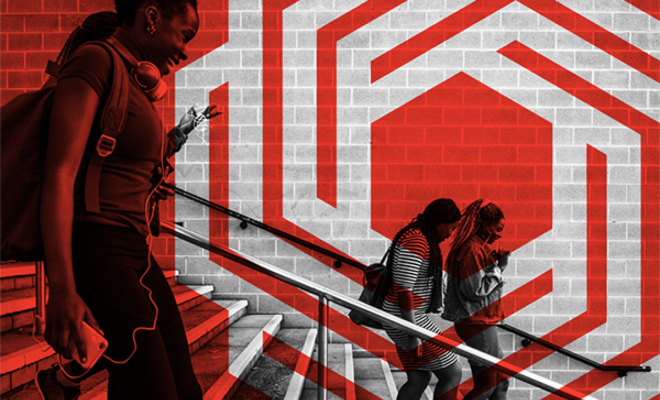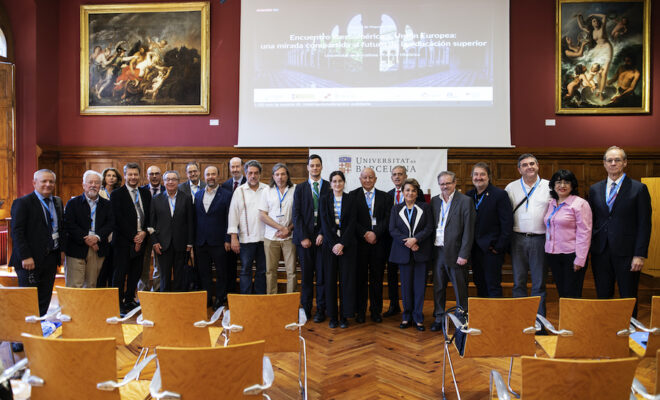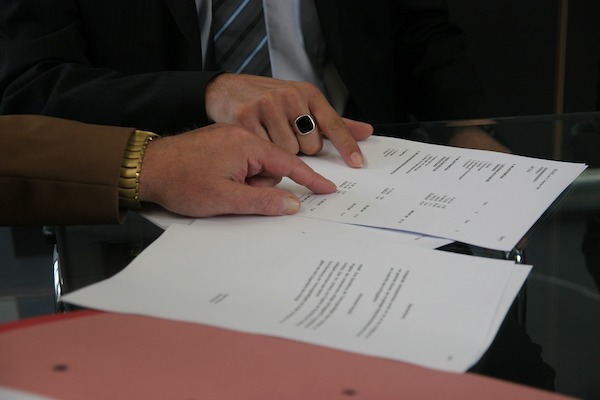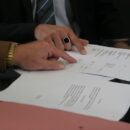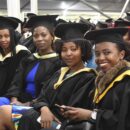Towards #WHEC2022. Webinar 2: Preparing for the futures of higher education
One of the main axes of UNESCO World Higher Education Conference #WHEC2022, to be held in Barcelona (Spain) in May 2022, is the futures of higher education. In order to transfer the approaches of Latin America and the Caribbean, UNESCO IESALC is carrying out a specific Regional Consultation, through a variety of events in order to bring together as many voices from different sectors as possible.
Moderator: Victoria Galán-Muros, Head of Research and Analysis, UNESCO IESALC
Some ideas from the speakers

Francesc Pedró, director UNESCO IESALC
With these activities we want to offer a platform, thanks to the collaboration of partners, so that the different actors in the region can express their points of view to promote a diagnosis of the 10 areas that make up the World Higher Education Conference 2022.
We emphasize that, in these times, and despite the pandemic, we remain committed to the inspiring principles that have been part of the tradition of the Regional Conferences on Higher Education. These have stated that it is a public and social good, that it is a universal right, and that the States have the duty to promote it, guaranteeing and respecting institutional autonomy.

Norberto Fernández Lamarra, professor emeritus of the Universidad Nacional Tres de Febrero
For education and for the university, the future is today. We must reflect critically on the situation of the university with a view to the future and try to propose some essential strategies to guide innovation in institutions in a creative and pluralistic way, to propose policies that will allow us to adapt our university institutions to make them more effective.
There is a need to create a Latin American Higher Education Area, from the academic spheres, from society as a whole, learning from the Europeans. Europe has a university in all its extension, with the possibility of exchanges. In Latin America we should have the same. Unity in the region is becoming more and more necessary in order to overcome the problems of our countries.
We have to think about how to orient a university that allows us to integrate our colleagues of the native peoples to our university environments, our culture, the academic debates. This is an urgent demand.
The future is not only technology; we have to think about the society we want for Latin America, taking into account the different profiles… And we have to ensure that innovations follow a process of evaluation to see where we are getting it right. Innovation must have an innovative strategy in its implementation. In this sense, universities in Latin America are more conservative than innovative.
It is necessary to have real diagnoses of our universities in most Latin American countries. Evaluation should be a clear indication of what we need to improve. Policies that are only enunciated, without programs or projects, are not executable. Sometimes projects are executed, but there is no follow-up, evaluation or analysis of their success. It is necessary to implement the methodology for the design of policies, with complete plans and adapting management and evaluation structures, and to modify and enrich them as they are developed.

Martha Patricia Castellanos Saavedra, academic vice-rector of the Fundación Universitaria del Área Andina Cristóbal Cobo
I think it is right to talk about futures because in a complex world we do not have a single path or a single answer. First of all, we have to reduce the inequalities and deep gaps that have been accentuated by the pandemic. We must think about inclusion and the fundamental role that higher education institutions have in the generation of critical thinking. To train citizens capable of providing solutions to a world in completely unexpected and ambiguous conditions.
It is necessary to generate mechanisms for students to enter and remain in the system, to see how higher education can enable competencies for students to reach the “know-how” and thus transform and generate more equitable and inclusive societies.

José Armando Tavarez Rodríguez, general director of the Center for Technology and Continuing Education of the Pontificia Universidad Católica Madre y Maestra
We must take into account the analysis of the environment and short and medium term trends. The pandemic accelerated digital transformation processes that were already taking place in society and that impact all aspects of life, particularly higher education. The digital divide is also a social divide.
The future that is not human-centered, student-centered and teacher-centered, supported by the digital revolution, will not be viable. Any university that aspires to be relevant must produce knowledge of value and relevance, generating solutions to concrete problems in order to respond to social inequalities in the region. It is necessary to transform the university system to speed up the responses that society requires.

Pablo Velasco Oña, political scientist at the Institut d’Etudes Politiques de Paris, student advisor for a master’s degree in political sociology
We should not think of academia as an end in itself. It is a space of power that affects other sectors and can function in two ways. It can be a space of emancipation that helps us respond to global issues, or it can be a space of reproduction of those same inequalities.
The university has to be a space of struggle for the academy to be relevant in priority areas such as inequality, the climate crisis and underdevelopment. The academy must respond and be relevant to these major current debates.
Learn more: Latin America and the Caribbean Consultarion addressed main themes of the #WHEC2022

RELATED ITEMS
